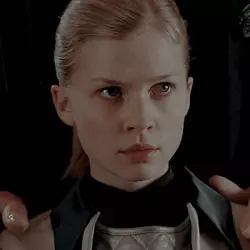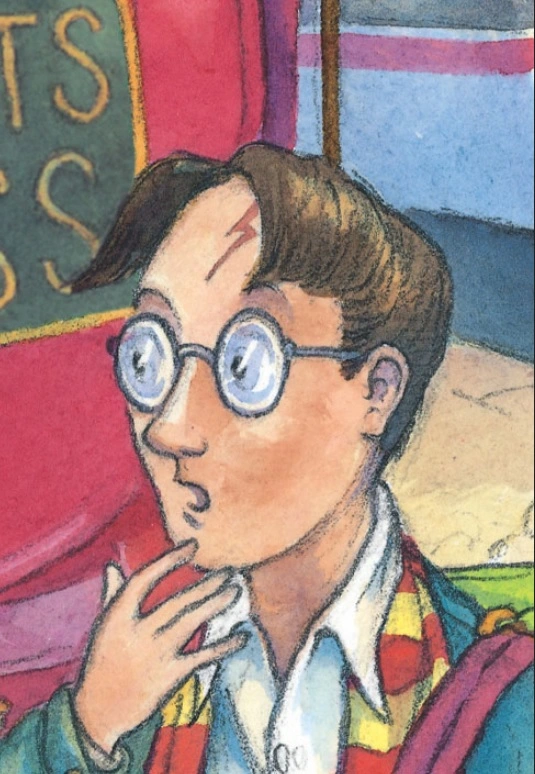AI may be a buzzword on Wall Street, but on the West Coast it’s at the center of Hollywood’s biggest labor dispute in more than 50 years. Among those warning about the technology’s potential to cause harm is British actor and author Stephen Fry, who told an audience at the CogX Festival in London on Thursday about his personal experience of having his identity digitally cloned without his permission.
“I’m a proud member of [actors’ union SAG-AFTRA], as you know we’ve been on strike for three months now. And one of the burning issues is AI,” he said.
Actors’ union SAG-AFTRA, which has around 160,000 members, went on strike last month over pay, working conditions, and concerns related to the use of AI in the film industry. It joined the Writers Guild of America—a union representing thousands of Hollywood writers—which went on strike in early May, marking the industry’s biggest shutdown in more than six decades.
A key sticking point for actors on strike is the possibility that studios could use AI to make digitally replicate their image without compensating them fairly for using their likeness.
Speaking at a news conference as the strike was announced, union president Fran Drescher said AI “poses an existential threat” to creative industries, and said actors needed protection from having “their identity and talent exploited without consent and pay.”
During his speech at CogX Festival on Thursday, Fry played a clip to the audience of an AI system mimicking his voice to narrate a historical documentary.
“I said not one word of that—it was a machine. Yes, it shocked me,” he said. “They used my reading of the seven volumes of the Harry Potter books, and from that dataset an AI of my voice was created and it made that new narration.”
Fry—who has appeared in movies including Gosford Park, V for Vendetta, and The Hitchhiker’s Guide to the Galaxy—is the narrator of the British Harry Potter audiobooks, while actor Jim Dale narrated the American version of the series.
“What you heard was not the result of a mash up, this is from a flexible artificial voice, where the words are modulated to fit the meaning of each sentence,” Fry told the audience at CogX Festival on Thursday.
“It could therefore have me read anything from a call to storm parliament to hard porn, all without my knowledge and without my permission. And this, what you just heard, was done without my knowledge. So I heard about this, I sent it to my agents on both sides of the Atlantic, and they went ballistic—they had no idea such a thing was possible.”
Fry added that when he discovered his voice was being used in projects without his consent, he saw it as just the beginning of an emerging threat to creative talent, warning his angry agents: “You ain’t seen nothing yet.” “This is audio,” he said he told them. “It won’t be long until full deepfake videos are just as convincing.”
As AI technology has advanced, doctored footage of celebrities and world leaders—known as deepfakes—has been circulating with increasing frequency, prompting warnings from experts about artificial intelligence risks. Fry warned on Thursday that those technologies only had further to go.
“We have to think about [AI] like the first automobile: impressive but not the finished article,” he said, noting that when cars were invented no one could have envisioned how widespread they are today.
“Tech is not a noun, it is a verb, it is always moving,” he said. “What we have now is not what will be. When it comes to AI models, what we have now will advance at a faster rate than any technology we have ever seen. One thing we can all agree on: it’s a f***ing weird time to be alive.”
Not the first
Fry isn’t the only famous actor to publicly vocalize their concerns about AI and its place in the film industry.
At a U.K. rally held in support of the SAG-AFTRA strike over the summer, Emmy-winning Succession star Brian Cox shared an anecdote about a friend in the industry who had been told “in no uncertain terms” that a studio would keep his image and do what they liked with it.
“That is a completely unacceptable position,” Cox said. “And that is the position that we should be really fighting against, because that is the worst aspect. The wages are one thing, but the worst aspect is the whole idea of AI and what AI can do to us.”
Oscar winner Matthew McConaughey told Salesforce CEO Marc Benioff during a panel event at this year’s Dreamforce conference that he had concerns about the rise of AI in Hollywood.
“We have a real chance, if we are irresponsible, of cannibalizing ourselves and creating this digital god that we’ll bow to, and we’ll all of a sudden become tools of this tool,” he said.
Meanwhile, Star Trek and Mission Impossible star Simon Pegg has called AI “worrying” for actors.
“We’re looking at being replaced in some ways,” he said at the rally in London in July. “We have to be compensated and we have to have some say in how [our image is] used. I don’t want to turn up in an advert for something I disagree with… I want to be able to hang on to my image, and voice, and know where it’s going.”
A spokesperson for the Alliance of Motion Picture and Television Producers (AMPTP), the entertainment industry’s official collective bargaining representative, was not available for comment when contacted by Fortune.


Oh hell yeah it’s just the beginning. Go check out some popular twitch streamers, they have TTS of tons of celebs using their voices. Those idiots are gonna get sued so fucking fast once celebrities figure out computers
So never then?
Really hard to sue someone if you’re just using sound bites, I doubt actors give zero shits about twitch streamers.
Oh I definitely think they’ll care. It’s using their likeness for their own personal gain, the actors will want some of that money
Unless some streamer is making millions using a single actors likeness. I don’t think thats who Fry is talking about here
Some of these streamers are making millions off the donations they receive to use TTS on their stream
You can’t copyright or trademark a voice. It’s 100% legal to clone someone’s voice and use it however your like. Basically, a person’s voice is public domain (according to the law as written right now).
You may be thinking, “well, they’re just going to change the laws now that rich and powerful people are concerned about it.” It’s certainly possible that they’ll try to do that but in reality it’s not workable. Here’s why: What makes your voice your voice?
A person’s voice (and accent) is unique for sure but using technological means to detect this is nearly impossible because there’s only so many possible variations of the human voice. Chances are there’s at least 80 million people with the exact same vocal chord sound as you. They all probably won’t have the same accent but that’s incredibly opinionated.
If a law gets passed giving people the right to copyright or trademark their voice (i.e. the algorithmic signature of it) there will instantly be millions of completely Innocent “violators” who are suddenly having their videos and music removed from everything because their voice matches the signature. It’s not workable. At least not technologically.
Another problem is that people’s voices change over time. Imagine if a kid’s voice was copyrighted… how many new children would suddenly be caught in that law enforcement net just by speaking? The voices of children are even less unique than adults!
They aren’t sound bites of anything the celebrities have said. They are original clips generated from text submitted by the viewer who has paid a fee for that to happen. Some celebrities actually sell their services this way and the streamer is taking that revenue from them.
So it’s even more a nothing burger…
less than 20 second clips get a fair use exemption.
“fair use” varies by jurisdiction and usually has a bit more than just sample size or length as a criteria.
Not really. You get the occasional loon that thinks they can copyright it unless it is a critique, but Courts have ruled the use transformative when it is a sound byte in a performance and not like a soundboard application or other such. And if it is a soundboard clip then the rights would be owed and paid by the company making the soundbyte and not the performer. The folks on twitch or whatever are on fairly safe ground.
What about celebrities who sell personalized messages? They have a right to make money off their likeness, not anyone else unless they’ve been given permission. These streamers are making money off their likeness with no cut going to the celebrity.
Not remotely the same thing. A streamer playing a clip of the original Artist saying the famous line isn’t going to cause said Artist to want to attack the use. Playing Mark Hamill yelling, “You are not my Father!”, isn’t a personalized message nor is that what the streamer is selling.
That’s not what we are arguing about here. The streamer is using AI to mimic the celebrities.
That is what was stated above. Sorry you missed that.
Fair use is a legal defense, not a law. It doesn’t mean you can’t be sued and it doesn’t guarentee you’ll win if you are.
You need a Lawyer willing to take the case and a Judge that won’t laugh while sanctioning them. I did production work for Years and this is how their Lawyers explained it to me.
Oh shit I didn’t know that. Do you think that’ll apply to AI generated TTS?
Are the clips just soundbytes? then yes.
Sue them how? You can’t copyright a voice.
Well, you probably can copyright aspects of your likeness that are sufficiently distinct. Just your voice might be too generic, but your voice and accent and mannerisms etc. presented in context (e.g. Trump-bot used in a political ad) might be specific enough to be convincing in court. I don’t think streamers are getting sued (successfully) at any point though.
I think/hope we eventually set some sane legal ground rules for the protection of individuals’ likenesses, causing (or stemming from) some high profile court case(s) involving serious offenders (e.g. publishing an AI-narrated audiobook without the original VA’s consent). Once that’s in the media for a bit (again I think/hope) we see companies like Twitch and Youtube ban the use of AI imitations on their platform to protect themselves. Just like DMCA.
You can not copyright aspects of your likeness. There are specific things that can be copyrighted in the US, and that is not one of them.
There are laws against having your likeness used for commercial purposes but that gets pretty murky when it comes to voices.